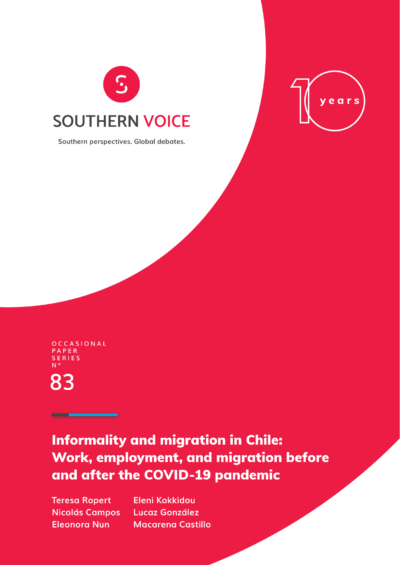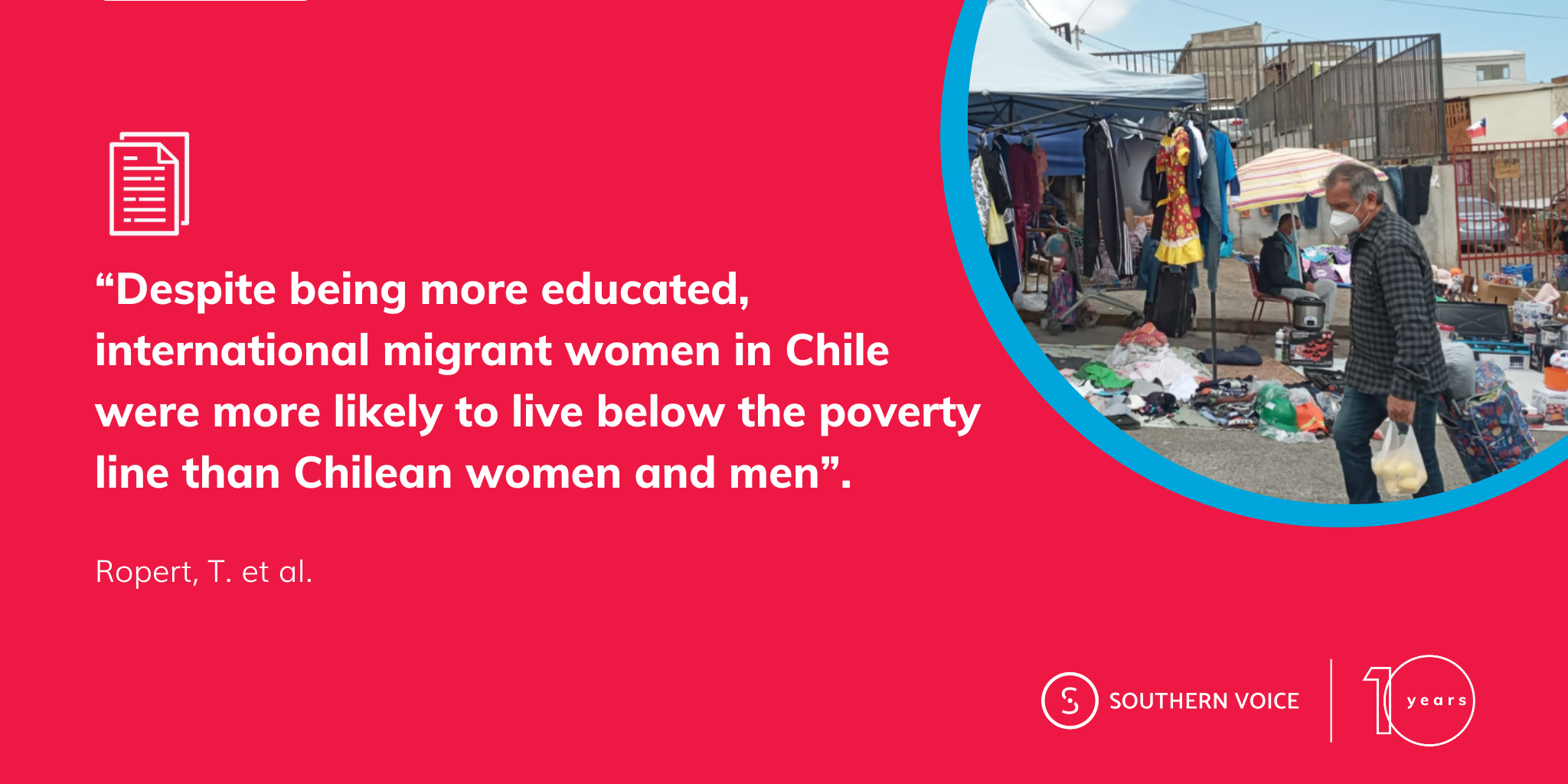
Chile began receiving significant flows of international migrants in the late 1990s. International migrants in Chile tend to have higher employment rates and educational levels than non-migrant populations, yet are vulnerable to lower salaries, strenuous working hours, subcontracting or informal work, and intergroup hostilities.
The study results show that international migrants recovered their jobs faster than Chileans during the pandemic but that those in a vulnerable situation were more likely to lose their jobs and turn to the informal sector, a shift that exacerbated pre-existing inequalities. Women and recent international migrants, in particular, were left behind in the post-pandemic economic recovery and were impacted by new forms of inequality.
Specifically, (i) women were particularly affected by unpaid care work which jeopardised their stable employment, and (ii) recent international migrants who entered Chile through unauthorised routes in the north of the country found themselves in a vicious circle of precarity leading to informal jobs, informal or irregular housing, and difficulties in terms of social services and regularisation of their migration status. It is found that informality is an increasing trend among migrants, especially in the northern regions of Chile and commercial districts. The paper recommends a clear communication agenda, the training of public officials, and the creation of national databases matching work vacancies with labour capacities. These recommendations should be transformed into effective national policies that promote safe, regular, and responsible migration practices in Chile.


